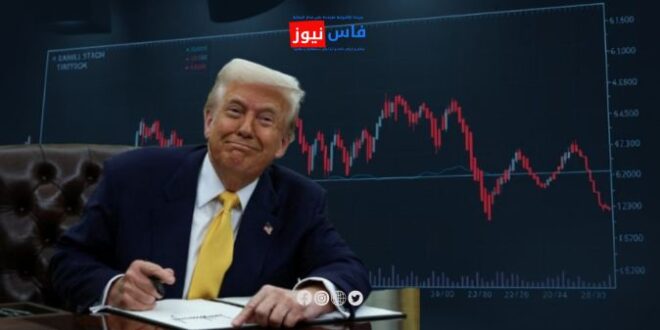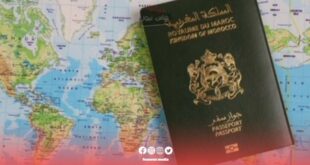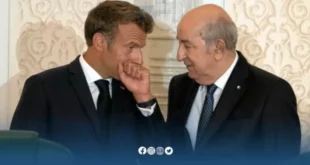In a meeting held today, Wednesday, US President Donald Trump presented a chart illustrating the tariff rates that the United States will impose on several countries, under the principle of “reciprocity.”
The data showed that Morocco received preferential treatment, with tariffs not exceeding 10%, the same rate imposed on Britain, Saudi Arabia, the UAE, and Egypt. In contrast, harsh tariffs were imposed on Tunisia (55%) and Algeria (30%), reflecting the US approach to dealing with countries based on the strength of economic and political partnerships.
Trump imposed high tariffs on some major economic powers, reaching 34% on China, 20% on the European Union, 24% on Japan, and 46% on Vietnam.
These figures reflect the extent to which the United States is keen to achieve a trade balance with countries that impose high tariffs on American products. In contrast, Morocco maintained its position as a reliable partner, benefiting from its strong historical relations with the United States and the Free Trade Agreement signed between the two countries since 2006.
This US preference for Morocco did not come out of nowhere, but reflects the depth of economic and strategic relations between Rabat and Washington, which extend to defense, investment, and security cooperation. On the contrary, imposing high tariffs on Tunisia and Algeria may have serious repercussions on their exports to the US market, especially in sectors that rely heavily on exports, such as textiles in Tunisia and energy resources in Algeria.
Today’s decisions confirm that US economic policy is based on mutual interests, where no country obtains privileges without being a reliable partner that respects the trade balance. Morocco, through its strategic relations, has proven itself as a strong economic and political partner, while Tunisia and Algeria face significant challenges due to the new tariffs.
 فاس نيوز ميديا جريدة الكترونية جهوية تعنى بشؤون و أخبار جهة فاس مكناس – متجددة على مدار الساعة
فاس نيوز ميديا جريدة الكترونية جهوية تعنى بشؤون و أخبار جهة فاس مكناس – متجددة على مدار الساعة
















